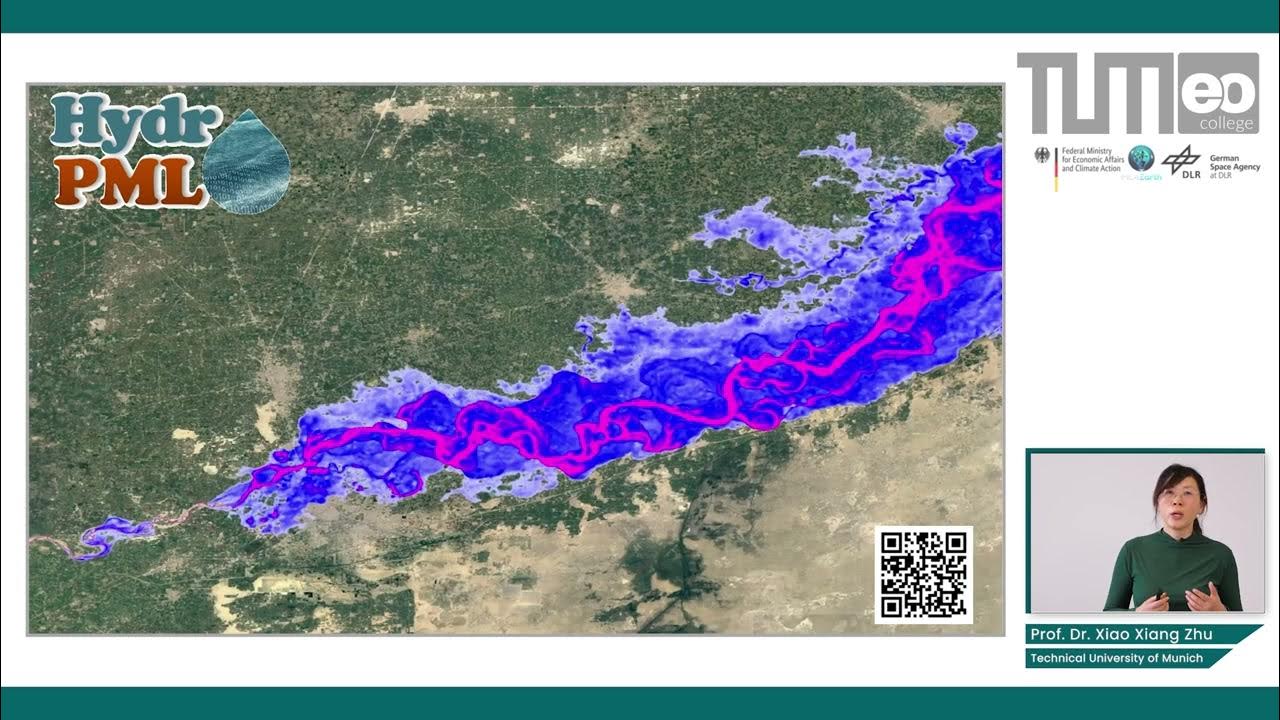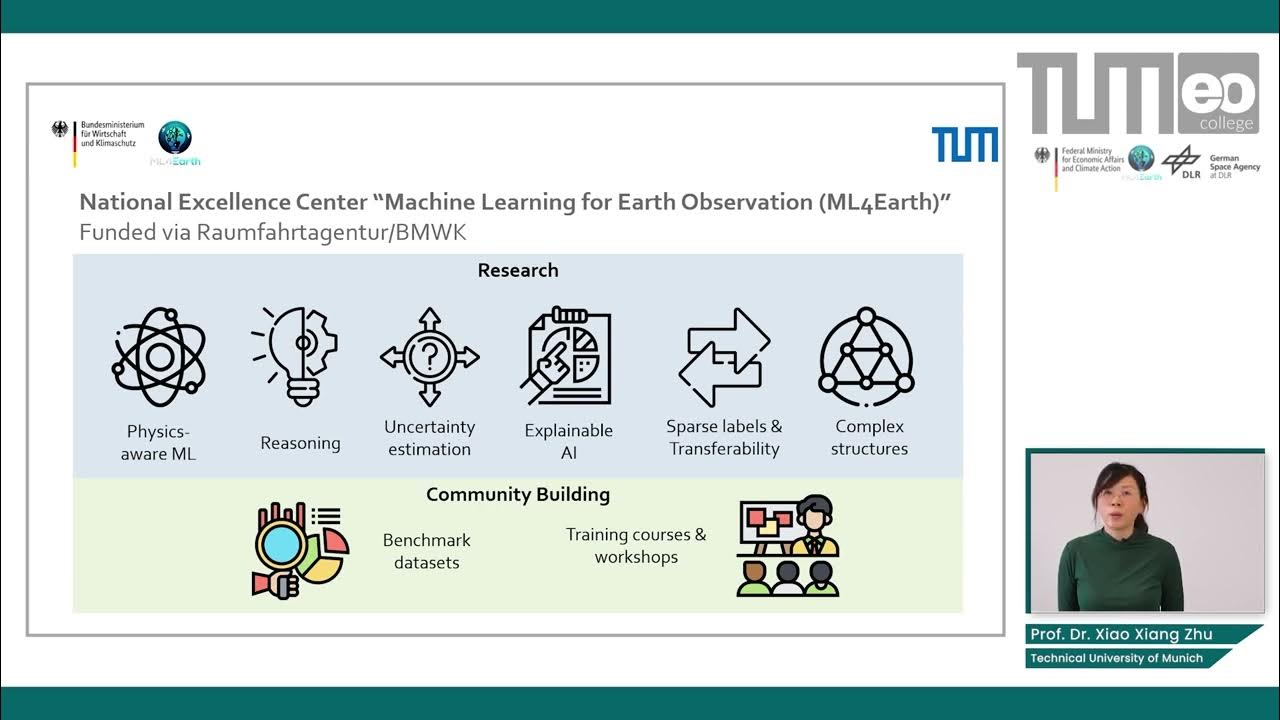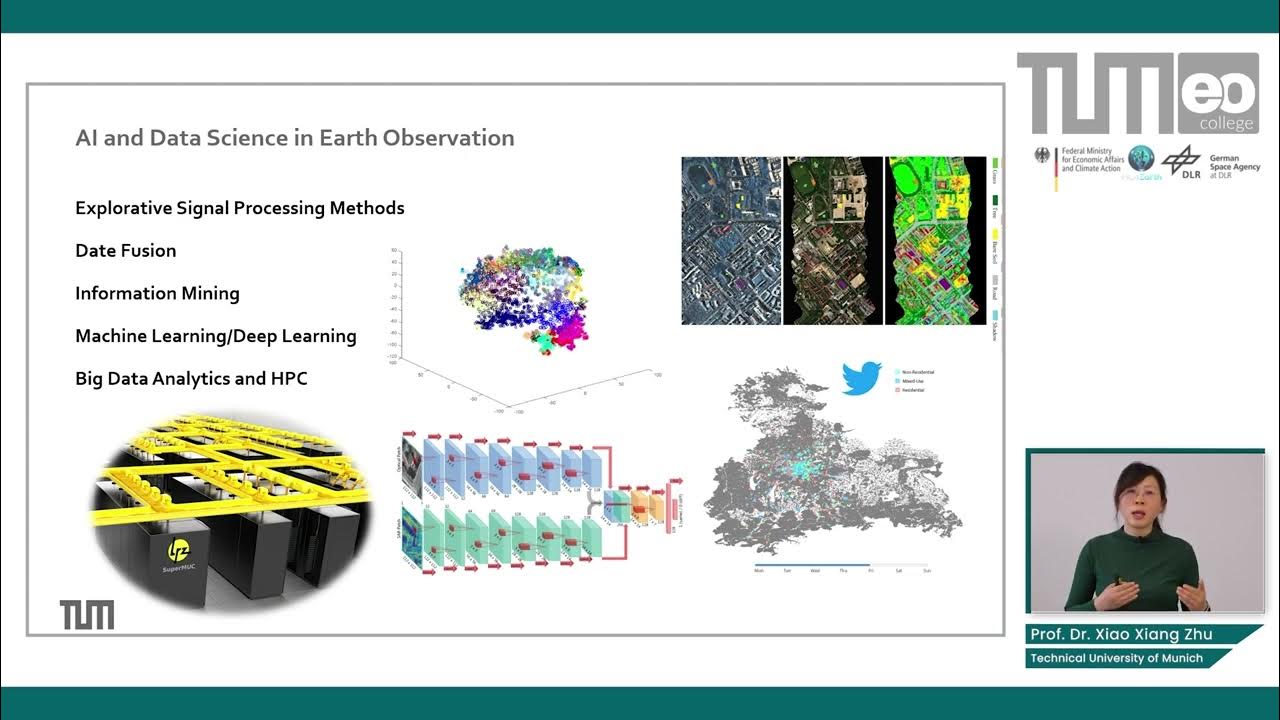Ethics in AI4EO - Applying Ethics to AI4EO
Summary
TLDRThis presentation discusses the ethical implications of integrating Artificial Intelligence (AI) with Earth Observation (EO) technologies. It highlights how AI in EO opens new use cases that impact human beings, animals, and the environment, raising concerns such as privacy, data fusion, and sustainability. The presentation also explores the role of the AI Act in setting ethical guidelines for high-risk AI systems. It emphasizes the importance of understanding ethics in research, including principles like honesty, responsibility, and sustainability, while also addressing challenges like outdated practices and the need for responsible AI in fields like agriculture.
Takeaways
- 😀 Ethics is crucial in Earth observation (EO) when combined with artificial intelligence (AI) as it impacts human beings, animals, and the environment.
- 😀 The increasing resolution of satellite images raises concerns about privacy, including the ability to identify individuals in detail.
- 😀 The AI Act is codifying ethics, and its application is technology-neutral, meaning it affects AI across various fields, including Earth observation.
- 😀 The fusion of satellite data with other sources like census and social media data can amplify ethical concerns, as each data source has its limitations.
- 😀 Many Earth observation scientists are not fully aware of how ethics apply to their daily research, especially in AI applications.
- 😀 A survey showed that while many scientists had read the ethics guidelines for trustworthy AI, they found them less useful for their day-to-day research.
- 😀 The ethical principles derived from AI guidelines were classified into six categories: privacy, honesty, integrity, fairness, responsibility, and sustainability.
- 😀 Respecting privacy helps avoid stigmatization, while failing to do so can result in negative consequences for individuals or groups.
- 😀 Honesty and integrity in AI for Earth observation involve practices like ensuring that test and training data sets do not overlap, preventing issues like overfitting in AI models.
- 😀 Responsibility in AI includes legal and ethical duties such as ensuring human oversight and duty of care, and sustainability encompasses environmental, social, cultural, and economic considerations.
- 😀 Earth observation AI can sometimes apply outdated models, such as detecting and removing weeds based on old agricultural practices, which may not align with modern sustainable farming principles like agroecology.
Q & A
Why is ethics important in Earth observation, especially when combined with AI?
-Ethics is critical because AI in Earth observation leads to new use cases that directly or indirectly impact human beings, animals, or the environment. As Earth observation becomes more relevant to real human lives, ethical issues become more prominent.
What are the privacy concerns related to the high resolution of satellite images?
-The increasing resolution of satellite images allows the identification of individuals and their activities, such as what they are doing on their terraces, raising significant privacy concerns.
How does the AI Act contribute to ethics in Earth observation?
-The AI Act codifies ethics, applying horizontally across all technologies, including Earth observation. It ensures that AI systems adhere to ethical standards and helps guide researchers in maintaining responsibility and fairness.
What ethical challenges arise from fusing Earth observation data with other sources?
-Combining Earth observation data with other sources, like census or social media data, magnifies ethical issues, as each data source may have its limitations. These combined datasets can lead to biases and privacy concerns.
Why are Earth observation scientists often unaware of how ethics applies to their work?
-Many Earth observation scientists are not well-versed in ethics and may not recognize how ethical issues can impact their day-to-day research. This highlights the need for increased awareness and education on ethics in their field.
What are the six categories of ethical principles in Earth observation research?
-The six categories of ethical principles are Privacy, Honesty, Responsibility, Sustainability, Integrity, and Fairness. These principles guide researchers in considering the ethical consequences of their work in Earth observation.
What ethical consequences arise from failing to respect privacy in Earth observation?
-Failing to respect privacy in Earth observation can lead to issues like stigmatization, where individuals or groups are unjustly labeled or marginalized, which can have significant social and legal repercussions.
How does honesty relate to AI models and Earth observation research?
-Honesty in Earth observation research is crucial for ensuring that AI models are built and tested with integrity. For example, ensuring that test and training datasets do not overlap prevents overfitting, leading to more reliable and trustworthy AI systems.
How does responsibility play a role in AI for Earth observation?
-Responsibility in Earth observation includes duties like ensuring legal compliance, involving humans in decision-making (human-in-the-loop), and considering the broader ethical impact of AI systems on society and the environment.
Can you explain the sustainability challenge with AI in agriculture as discussed in the presentation?
-The presentation highlighted a case where satellite images are used to detect weeds in agriculture. While traditional agriculture views weeds negatively, current agroecology views them differently. AI-based recommendations to remove weeds might be outdated and inconsistent with sustainable farming practices, illustrating the ethical challenge of ensuring that AI systems align with evolving, more responsible agricultural practices.
Outlines

This section is available to paid users only. Please upgrade to access this part.
Upgrade NowMindmap

This section is available to paid users only. Please upgrade to access this part.
Upgrade NowKeywords

This section is available to paid users only. Please upgrade to access this part.
Upgrade NowHighlights

This section is available to paid users only. Please upgrade to access this part.
Upgrade NowTranscripts

This section is available to paid users only. Please upgrade to access this part.
Upgrade NowBrowse More Related Video

AI and Data Science in Earth Observation - Methodological Research

Ethics in AI4EO - Basic Concepts

AI and Data Science in Earth Observation - Large Scale Representative Annotated Datasets

AI and Data Science in Earth Observation - Introduction

The Biggest Ethical Challenges For Artificial intelligence

🤖How AI Works? 🦾Artificial intelligence எப்படி வேலைசெய்கிறது? in Tamil #ai #artificialintelligence
5.0 / 5 (0 votes)